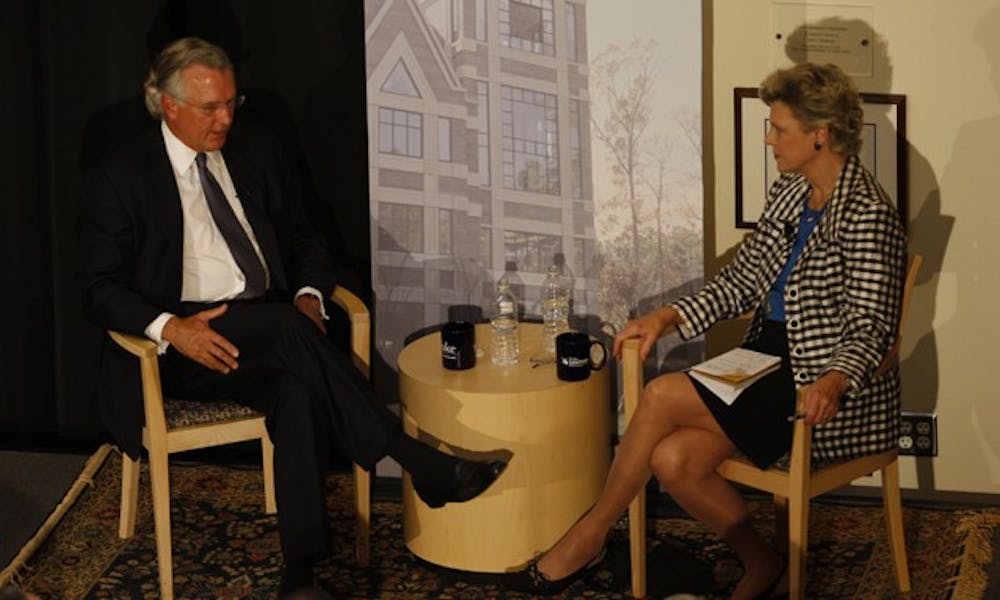One year after the global financial crisis wrecked Wall Street, alumni and students crowded Fleishman Commons to hear an insider’s account of the collapse.
Cokie Roberts, news analyst for ABC news and NPR, led the question-and-answer session featuring Richard Fisher, chief executive officer of the Federal Reserve Bank of Dallas.
The presentation, titled “The New Global Economy,” was part of the Terry Sanford Distinguished Lectures series, which celebrates the inauguration of the Sanford School of Public Policy.
Fisher cited Washington Irving’s “The Great Mississippi Bubble” and compared the 1719 Mississippi River speculations to recent risky financial derivative trades. Fisher said factors that led to the Mississippi Bubble’s burst—like greed, irrational fear and short-sightedness—also led to the housing bubble’s burst and subsequent financial disaster.
“We abused capitalism…. It’s our duty to make sure it doesn’t happen [again,]” Fisher said.
Fisher noted that there is no easy way to reform and regulate financial institutions, but he remained optimistic about the Federal Reserve’s work. Fisher said he believes the Fed intervened in time to prevent the recession from worsening further.
Fisher said although he predicts unemployment will increase, the U.S. economy will continue to recover.
“The only function of economic forecasting is to make astrology look respectable,” Fisher said, quoting economist John Kenneth Galbraith.
He added that in order to prevent another recession, businessmen must understand how intertwined the global economy is, and that their actions have a profound impact on those who are far removed from the financial sector. Fisher added that the government must incentivize ethical business practices and control risky behavior like credit default swaps.
Still, Fisher said the U.S. is the most attractive place to foreign investors.
“What makes the U.S. great is that we are masters of creative destruction,” Fisher said, drawing from the theory of Austrian economist Joseph Schumpeter.
He cited America’s universities as the country’s greatest asset, and stressed the importance of a creative, educated population that will constantly invent to replace the obsolete.
Several audience members asked Fisher about U.S. trade relations with China.
Fisher said the trade relationship between the two countries is vital for the survival of the U.S. economy and warned against protectionist policies.
His answers to questions from audience members generated a positive response.
Dotty Caudle, Nursing ’51, said she thought Fisher’s responses throughout the presentation were “very honest.”
Get The Chronicle straight to your inbox
Signup for our weekly newsletter. Cancel at any time.

